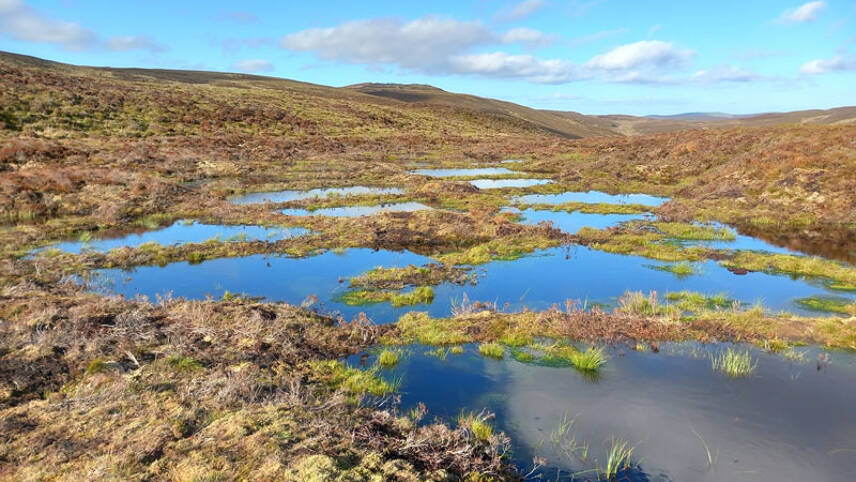Register for free and continue reading
Join our growing army of changemakers and get unlimited access to our premium content

Image: RSPB
The retailer has today (9 June) announced a new partnership with the RSPB, through which it will support the restoration of upland peatland habitats equivalent in size to some 400 football pitches.
Restoration will take place on peatland that is being eroded, across RSBP-owned pieces of land in Scotland and Wales. This will help to improve the land’s carbon sequestration properties, while also regulating water flow, which can improve water quality and reduce flood risk.
According to the International Union for the Conservation of Nature (ICUN), almost 80% of the UK’s peatlands are degraded. The nation’s peatlands sequester some 3.2 billion tonnes of CO2e at present but, if they degrade too much, there is a risk of them becoming carbon sources rather than carbon sinks.
The RSPB and Co-op partnership will focus, in the first instance, on Cerniau, Wales, and Lumbister, on Shetland.
“For us to have any chance of averting the climate crisis we need to be working far more closely with nature; to use the solutions it offers to help lock up carbon whilst also delivering for birds and other wildlife,” said RSPB’s executive director for income and conservation investment, Rebecca Munro.
“Businesses have a vital role to play in the transition to net zero and we are excited to be working with Co-op to protect and restore some of our most precious upland sites to make sure these places are delivering for our climate whilst also providing a lasting home for our wildlife.”
The launch of the partnership follows the Co-op’s 10-point Climate Action Plan. Published in 2021, this Plan outlines the retailer’s pathway to a net-zero value chain by 2040.
The Co-op will not count carbon removals resulting from peatland restoration towards its own carbon targets. Instead, they will be an external, additional benefit.
Peat products
Many trends have contributed to the degradation of peatland in Britain, including changing weather patterns resulting from climate change, peat burning and the extraction of peat for use in products like compost.
The UK Government confirmed last year that sales of bagged peat-based gardening products will be banned in England by the end of 2024. However, sales will still be allowed to some businesses, which has disappointed environmental groups.
In the meantime, several major retailers have voluntarily moved to end peat-based product sales. The Co-op, for example, has only sold peat-free alternatives since 2021.


Please login or Register to leave a comment.